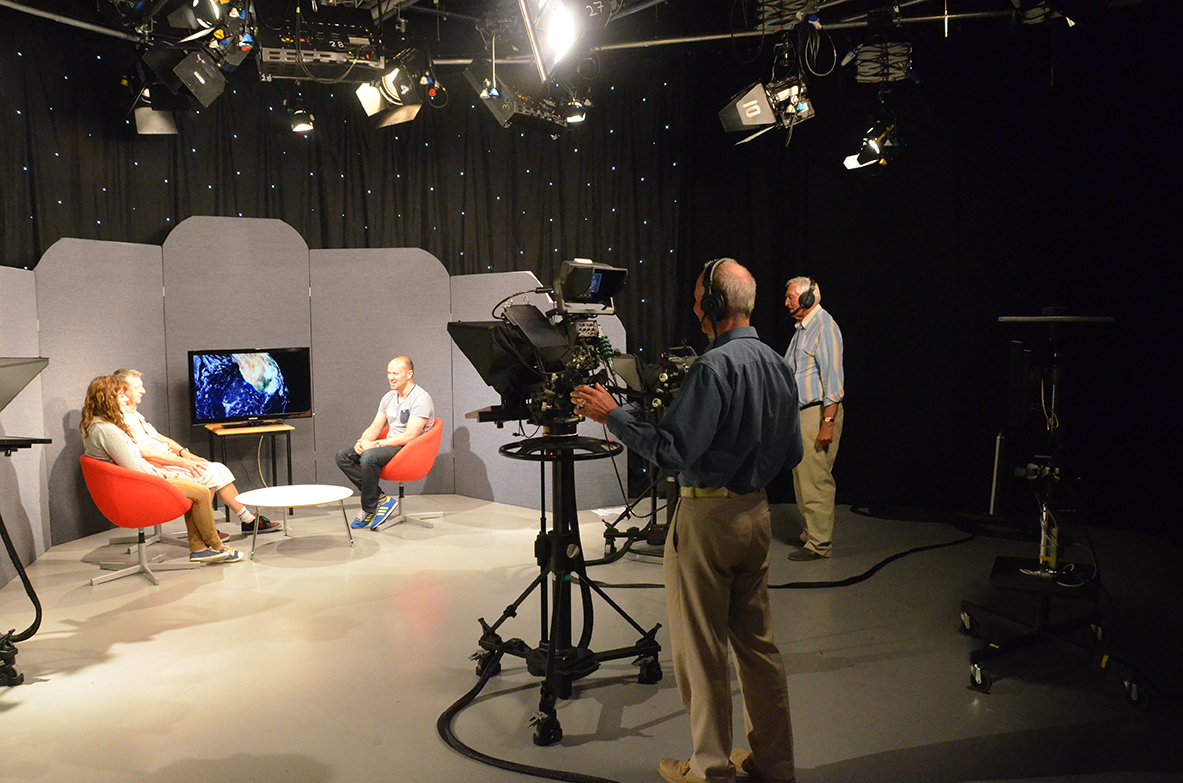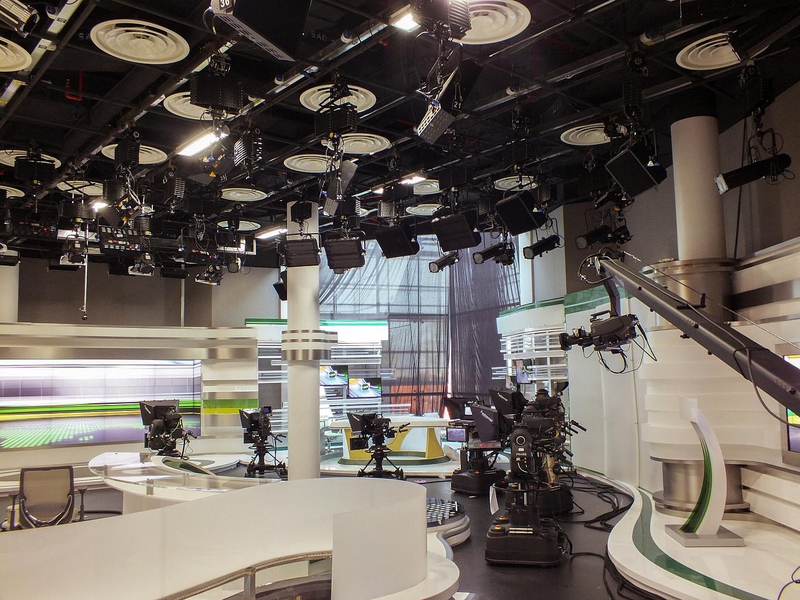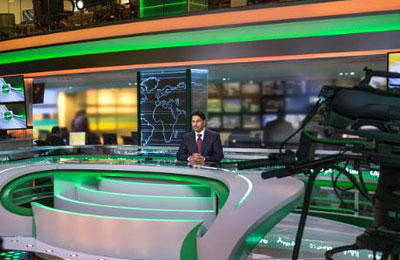KHASSHORGI'S BUSINESS OUTFIT
UNVEILED-


 Arab News Channel
Arab News Channel
From Wikipedia, the free
encyclopedia
|
al-Arab
News Channel
|
|
|
Launched
|
1 February 2015
|
|
Closed
|
1 February 2015
|
|
Owned
by
|
|
|
Country
|
Saudi Arabia
|
|
Language
|
|
|
Broadcast
area
|
Arab World
Worldwide |
|
Headquarters
|
|
|
Sister
channel(s)
|
Arab Today TV
Bahrain News Channel Qatar News Television |
al-Arab (Arabic: العرب)[1] was an Arabic-language news channel which vowed to
practice objective journalism.[2][3] It was launched on 1 February 2015[1] and almost immediately shut down.[2][3][4] The channel was owned by Saudi prince and entrepreneur al-Waleed bin Talal,
and was based in Manama, Bahrain.
Contents
Creation
In July 2010, Prince Al-Waleed,
owner of a stake in News Corporation,
planned to collaborate with News Corp to launch a 24-hour Arabic-language news
channel.[5] After a year of deliberation, Al-Waleed
announced on 13 September 2011 the launch of Alarab as a personal private
venture.[6] He said the channel's editorial stance
would be "inspired by the recent political events that have transformed the
region, with particular attention to be paid to freedom of speech."[7] The channel was supposedly entirely
privately funded, with Al-Waleed insisting that it would not receive
instructions from the Saudi government.[7] At the time of the launch, no mention
was made of News Corp's involvement.[8]
In December 2011, Manama, Bahrain, was chosen as the network's
headquarters.[9] Doha,
Dubai, Abu Dhabi and Beirut were also among the cities considered to
host the network.[10] Prince Al-Waleed retained close ties
with the Bahraini royal family
while his Kingdom Holding
Company maintains a presence in the country through indirect
investments in the banking sector.[11]
Al-Arab was launched on 1 February
2015.[1]
Al-Arab's regional competitors were
Qatari-owned Al Jazeera and
Saudi-government-owned Al Arabiya, along with BSkyB's
Sky News Arabia.[7] In a January 2012 interview, Al-Waleed
described Al Jazeera as the "masses channel" while implying that Al
Arabiya is the "government channel" among the two main news channels
in the Middle East. He stated his goal for Al-Arab to "takes the centre’s
point of view" between the two networks.[12]
Ownership
and management
Al-Arab was privately owned by
Prince Al-Waleed bin Talal,
independent from Kingdom Holding
Company and Rotana Group, two
corporations controlled by the prince.[13] It was headquartered in Manama's Media City complex.[9] The channel was based outside Saudi Arabia as the country does not allow
independent news channels to operate within its borders.[7]
The channel's director was Jamal Khashoggi, former editor of Al Watan,
a newspaper in Saudi Arabia.[7] Khashoggi was removed as editor in 2010
after Al Watan published an article criticizing Salafism, the fundamentalist Islamic movement
that is Saudi Arabia's official state religion.[14]
The channel partners with US
financial news channel Bloomberg Television,
which would have provided five hours of daily programming, including financial
bulletins, analysis, reports on regional business leaders, and global financial
news.[7] The partnership would have brought
al-Arab into direct competition with Arabic-language financial news channel CNBC Arabiya.[15]
Bad
management and shutdown
On 1 February 2015, al-Arab's first
day of programming included an interview with Bahraini Shi'a politician and
former member of the Council
of Representatives, Khalil al-Marzooq, who discussed the cancelling
of 72 Bahrainis' citizenship. Broadcasting was suspended after the interview.[16][17] Al-Arab stated that the suspension was
for "technical and administrative reasons", while the newspaper Akhbar al-Khaleej attributed the suspension
to al-Arab "not adhering to the norms prevalent in Gulf countries".[1]
The shutdown of Al Arab TV was a
result of the poor understanding of the market environment on behalf of the
station's management. According to several marketing analysts, the senior
managers of the station did not properly evaluate the political environment of
Bahrain and the limitations that it has, hence their decision to interview a
prime Bahraini opposition personality - something which the Bahraini government
would not accept.[citation needed]
No comments:
Post a Comment